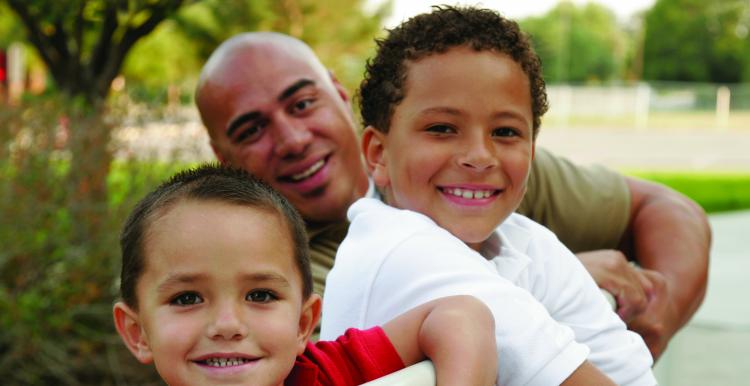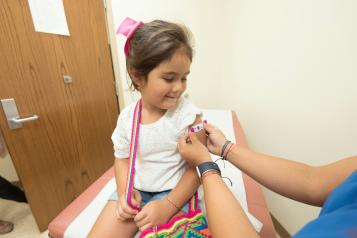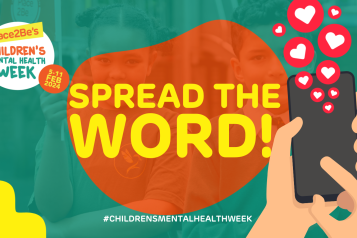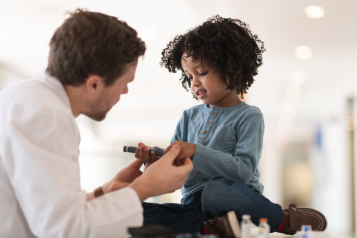How to treat chickenpox

What is chickenpox?
Chickenpox is common and mostly affects children, but you can get it at any age. It usually gets better by itself after 1 to 2 weeks without needing to see a GP.
Check if it's chickenpox
An itchy, spotty rash is the main symptom of chickenpox. It can be anywhere on the body.
Chickenpox happens in 3 stages. But new spots can appear while others are becoming blisters or forming a scab.
Stage 1: small spots appear
The spots can:
- be anywhere on the body, including inside the mouth and around the genitals, which can be painful
- spread or stay in a small area
- be red, pink, darker or the same colour as surrounding skin, depending on your skin tone
- be harder to see on brown and black skin
Stage 2: the spots become blisters
The spots fill with fluid and become blisters. The blisters are very itchy and may burst.
Stage 3: the blisters become scabs
The spots form a scab. Some scabs are flaky while others leak fluid.
Other symptoms
Before or after the rash appears, you might also get:
- a high temperature
- aches and pains, and generally feeling unwell
- loss of appetite
Chickenpox is very itchy and can make children feel miserable, even if they do not have many spots.
The chickenpox spots look the same on children and adults. But adults usually have a high temperature for longer and more spots than children.
It's possible to get chickenpox more than once, but it's unusual.
You can catch chickenpox by being in the same room as someone with it. It's also spread by touching things that have fluid from the blisters on them.
If you're not sure it's chickenpox
Check other rashes in children
How to treat chickenpox at home
Important: Stay off school or work
You'll need to stay away from school, nursery or work until all the spots have formed a scab. This is usually 5 days after the spots appeared.
Do
-
drink plenty of fluid (try ice lollies if your child is not drinking) to avoid dehydration
-
take paracetamol to help with pain and discomfort
-
cut your child's fingernails and put socks on their hands at night to stop them scratching
-
use cooling creams or gels from a pharmacy
-
speak to a pharmacist about using antihistamine medicine to help itching
-
bathe in cool water and pat the skin dry (do not rub)
-
dress in loose clothes
Don’t
-
do not use ibuprofen unless advised to do so by a doctor, as it may cause serious skin infections
-
do not give aspirin to children under 16
-
do not go near newborn babies, people who are pregnant and people with a weakened immune system, as chickenpox can be dangerous for them
-
do not scratch the spots, as scratching can cause scarring
Speak to a GP if:
- you're not sure it's chickenpox
- you're concerned about your child
Tell the receptionist you think it might be chickenpox before going in to a GP surgery.
Get advice from 111 now if:
- the skin around the chickenpox blisters is hot, painful and red, but redness may be harder to see on brown or black skin
- your child has chickenpox and is dehydrated
- chickenpox symptoms suddenly get worse
- you're pregnant and have not had chickenpox before, or you're not sure, and you've been near someone with chickenpox
- you have a weakened immune system and have been near someone with chickenpox
- you think your newborn baby has chickenpox
Some people may be able to take medicine to prevent complications. It needs to be started within 24 hours of the spots appearing.
111 will tell you what to do. They can arrange a phone call from a nurse or doctor if you need one.
Go to 111.nhs.uk or call 111.
Other ways to get help
It's easy to catch chickenpox
When chickenpox can be spread
You can spread chickenpox to other people from 2 days before your spots appear until they have all formed scabs – usually 5 days after your spots appeared.
How soon you get symptoms after catching chickenpox
The spots start appearing around 1 to 3 weeks after you caught chickenpox.
Chickenpox in pregnancy
Most people get chickenpox during childhood, so it's rare to get chickenpox when you're pregnant.
If you do get chickenpox when you're pregnant, there's a small risk of your baby being very ill when it's born.
Go to 111.nhs.uk or call 111 if you have not had chickenpox before and you've been near someone with it.
The chickenpox vaccine
You can get the chickenpox vaccine on the NHS if there's a risk of harming someone with a weakened immune system if you spread the virus to them.
For example, a child can be vaccinated if 1 of their parents is having chemotherapy.
You can also pay for the vaccine at some private clinics or travel clinics. It costs between £120 and £200.
Shingles and chickenpox
You cannot catch shingles from someone with chickenpox.
You can catch chickenpox from someone with shingles if you have not had chickenpox before.
When you get chickenpox, the virus stays in your body. The virus can be triggered again if your immune system is weak. This causes shingles.
This can happen because of stress, certain conditions, or treatments like chemotherapy.


